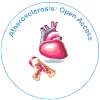Notre groupe organise plus de 3 000 séries de conférences Événements chaque année aux États-Unis, en Europe et en Europe. Asie avec le soutien de 1 000 autres Sociétés scientifiques et publie plus de 700 Open Access Revues qui contiennent plus de 50 000 personnalités éminentes, des scientifiques réputés en tant que membres du comité de rédaction.
Les revues en libre accès gagnent plus de lecteurs et de citations
700 revues et 15 000 000 de lecteurs Chaque revue attire plus de 25 000 lecteurs
Indexé dans
- Google Scholar
- Recherche de référence
- Université Hamdard
- EBSCO AZ
- Publons
- ICMJE
Liens utiles
Revues en libre accès
Partager cette page
Abstrait
Sleep Disorders in Patients with Parkinson Disease and Its Correlation to Motor Symptoms Severity
Rabwa Khalil Mohammed Fadol
Background: Sleep disturbances are non-motor manifestations, which occurs in up to 96% of patients with
Parkinson’s disease (PD). They include insomnia, disorders of daytime somnolence, sleep-related breathing disorders,
restless legs syndrome (RLS), and rapid eye movement behavior disturbances. Sleep disorders have significant impact
on the quality of life in Parkinson’s disease patients.
Method: This was a cross-sectional descriptive study conducted at three neurology referral hospitals. The aim
was to assess the frequency and pattern of sleep disturbances among patients with PD. Questionnaires were used to
obtain the demographic, clinical features and evaluation of sleep disturbances using PD sleep scale-2 (PDSS-2). The
correlation of quality of sleep with the duration of the disease and severity of motor symptoms was assessed using
Hoehn and Yahr staging. SPSS version 25 was the tool used for analysis—p value <0.05.
Results: 71 patients with confirmed PD were studied. Males represented 70.4% and the mean age was 64.66 ±
9.6years.
38% had significant nocturnal sleep disturbances (PDSS-2≥18). The most common sleep disorders were nocturia
72% (51), sleep maintenance insomnia 46% (38), sleep refreshment 46% (34), waking up due to pain in arms or legs
45% (32) and (21%) 15 had nocturnal hallucinations. Poor sleepers exhibited longer disease duration but revealed no
association with PD severity.
Conclusion: In 71 patients with Parkinson’s disease, one-third had significant sleep disturbances. PDSS-2 score
was positively correlated to prolonged duration but not motor symptoms’ severity
Revues par sujet
- Agriculture et Aquaculture
- Biochimie
- Chimie
- Food & Nutrition
- Génétique et biologie moléculaire
- Géologie et sciences de la Terre
- Immunologie et microbiologie
- Ingénierie
- La science des matériaux
- Le physique
- Science générale
- Sciences cliniques
- Sciences environnementales
- Sciences médicales
- Sciences pharmaceutiques
- Sciences sociales et politiques
- Sciences vétérinaires
- Soins infirmiers et soins de santé
Revues cliniques et médicales
- Allaitement
- Anesthésiologie
- Biologie moléculaire
- Cardiologie
- Chirurgie
- Dentisterie
- Dermatologie
- Diabète et endocrinologie
- Gastro-entérologie
- Immunologie
- La génétique
- Maladies infectieuses
- Médecine
- Microbiologie
- Neurologie
- Oncologie
- Ophtalmologie
- Pédiatrie
- Recherche clinique
- Soins de santé
- Toxicologie

 English
English  Spanish
Spanish  Chinese
Chinese  Russian
Russian  German
German  Japanese
Japanese  Portuguese
Portuguese  Hindi
Hindi